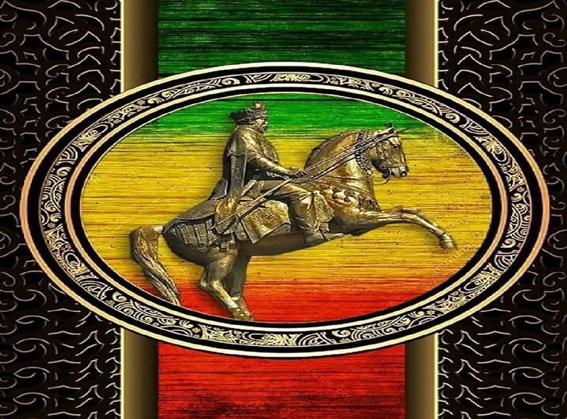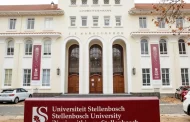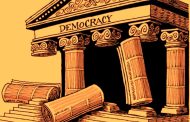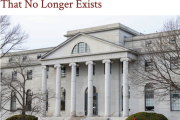It is March 2nd, 2021 and the 125th anniversary of the battle of Adwa in 1896 where European/Italian forces were given the beating of their life by Ethiopian forces. It is appropriately an African victory hailed by all critics of colonialism worldwide. But it is a victory celebrated more by freedom lovers across the world than by African politicians, media, intellectuals and undergraduates, for instance. In this blog piece dripping wet with a Pan African lens, the authors put across a very situated and logical advocacy that we must all read in full.
March 2nd, 2021 marks the 125th anniversary of the Battle of Adwa, a decisive victory of Ethiopia over Italian colonialism. This great victory has been a source of inspiration for struggles for freedom throughout the pan-African world. Adwa has important lessons for Africans in their resistance against new forms of oppression.“The focus on modern Ethiopia by people of African descent started during the age of segregation and colonialism. In an Africa partitioned by European powers at the Congress of Berlin, where no African representatives were present, independent Ethiopia represented a kingdom and a beacon for idealists who promoted the freedom of Africa and other Blacks around the world. This was emphasized when Ethiopian forces defeated invading Italians at the Battle of Adowa in 1896.”(http://blackexpat.com/new/magazine/black-in-the-day-afro-american-and-af…)

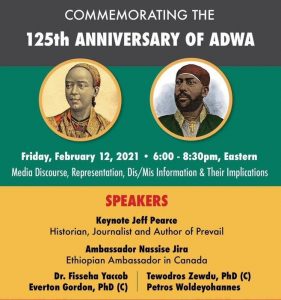
It is a worldwide celebration
It is urgent that the constructive and positive heritage of liberation struggles from every part of Africa be studied and resurrected in order to re-educate and wean generations of Africans to know what the struggle heritage entails. The glorious past, particularly of early Africa and resistance to numerous imperial advances, and the stolen legacy should be recovered. The battle of Adwa in 1896 epitomises successful resistance against colonialism. It has come to be recognized as one of the most significant African liberation struggles that took place during the time of the European Scramble for Africa. The best highway of African liberation is symbolized by the successful resistance of the 1896 Adwa victory. It lives on, providing enduring lessons that all should pay close attention to always.
Internally in Ethiopia, all the varied groups from Oromo resident areas to Eritrea were mobilized and contributed richly to the success of the Adwa by all Ethiopians through the depth and breadth of the land.
This was not a victory of the leaders, or one ethnic group. This was a national victory with a wider African and indeed world significance. It was and remains an exemplary episode in demonstrating what a united people can achieve with the support of the African Diaspora and the anti-colonialists in the Global South and even in Italy and the rest of Europe too! Adwa Victory was a major anti-colonialist battle fought by all Ethiopians, under the skillful leadership of Emperor Menelik and Empress Taitu. This victory resonated well beyond the Ethiopian and indeed the African borders. It represented the clash between colonialism and liberation on a world-scale. Every year during ‘Yekatit’ (February) or March Adwa can provide the occasion to appreciate fully the international significance of the Ethiopian victory over the world colonial project in Africa. The failure to put this victory in the context of the wider challenges which confronted Africa before, during and after the nineteenth century needs to be put right. Adwa victory highlighted Ethiopianism’s anti-imperial-colonial project significance convincingly. It is a matter of historical record that the Adwa victory signaled the beginning of the end of the Scramble for Africa. This victory constitutes a crucial chapter in the record of African resistance and liberation. It armed generations of Africans with the confidence of victory to engage in resistance and liberation. It attracted attention as far as the Caribbean and the Americas, not to mention Europe and the rest of Africa. Adwa victory reversed the imperial-colonial project’s design to populate Africa with Europeans like they did with America. It deserves to be celebrated both as a significant episode in its own right and as a memory serving well the emerging communities of resistances in the African world never again to surrender to neo-colonial tyranny. The battle of Adwa is not just a memory of the past. It continues to live on in the eternal river of time as the best expression of Ethiopianism for resisting effectively the world imperial-colonial project.
This event which took place 125 years ago by a relatively small and weak country, against Italy – with also support from all the imperial powers that tore to pieces Africa at the Scramble for Africa in Berlin in 1885 – which was also becoming lately a formidable, highly armed and ambitious new colonial power, is still relevant today. It is united and not divided Ethiopians with support from the rest of Africa that brought the victory to a full realization. It is the strategic thinking of the leadership that made a big difference. The support of the African Diaspora and anti-colonial forces across the world was inspirational.
11. Significance Of the Adwa Great African Victory
Adwa victory Promoted Ethiopianism as Pan Africanism on a world scale. The 1872-1928 period is called “the classical period of Ethiopianism because it was at this time that it exercised its greatest political influence and was most widely noticed in the European, American and African press” (Shepperson, G., Ethiopianism past and Present in C. Baeta (ed.), Christianity in Tropical Africa, Oxford University Press,1968. p.250).
By the early 20th Century Ethiopianism emerged among African anti-colonial activists as a subtle method of challenging colonial rule by combining Christian and secular nationalist traditions to promote the idea of African capacity for organization-building without European tutelage.
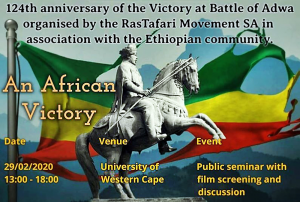
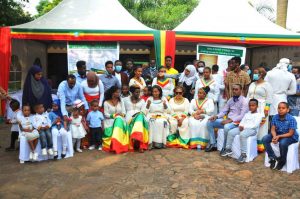
In celebratory mood
Although Ethiopianism originated as a religious movement, it was significant in establishing the demand for the emancipation of the peoples of African descent inside and outside Africa. Ethiopianism asserted that African history, civilisation and culture are sources of pride and a fountainhead of European culture. After discussion with those who formed the Ethiopian Church ”on the wider meaning of the designation Ethiopia, all agreed that according to the prophesies it literally refers to all non-European people.”(Glenda Kruss, Thesis, 1985). Ethiopianism involved an awareness of the history and vaues of African culture. African history and culture became a source of pride with emphases laid on glorious African kings and empires and on the widely held belief that African culture and civilisation had been the fountainhead of European culture (Glenda Kruss).The political aspiration of the Ethiopian leadership saw the ideal chance for its own ascent in the eviction of the European and removal of slavery from the African continent. Ethiopianism promoted by the 1829 Manifesto and the 1896 Manifesto the fore bearer of Pan Africanism promoting Africa for Africans, Africans are for humanity and humanity for God! The Adwa victory provided practical expression to Pan-Africanism: self-worth, dignity, unity, resistance, confidence, self-reliance and freedom from colonialism. Africans should unite as humans, and not give in to the tribal divide and rule tactics colonialists left behind, which still persist as vile ethnicism. Adwa victory changed the relationship between Ethiopia and the rest of Africa and Europe. It is remarkable that from 1896-1906, Pan-African intellectuals like the Haitian, Benito Sylvain, visited Ethiopia four times. During the 1903-1904- the Cuban-American, William H. Ellis, visited Ethiopia twice with plans for Ethiopian economic development and the resettlement of African Americans. Marcus Garvey immortalised Ethiopia by incorporating the spirit of resistance of Adwa in his National Black Anthem. In 1904 Haiti’s centenary of independence was celebrated in Addis Ababa, where an honored guard of Ethiopians volunteered and fired several rifle rounds, with their slogan: Long Live Haiti! Long live the Ethiopia! Benito Sylvain got the permission from Emperor Menelik for the celebration and he represented both Ethiopia and Haiti in the 1900 Pan-African Congress and Emperor Menelik after 1896 was appointed as honorary president of the Pan-African Association.
As the spiritual values of Ethiopianism laid the foundation for pan-Africanism to unite all Africans to fight colonialism and apartheid, the same values of dignity, pride, self-worth, agency and freedom are needed also to realize the African renaissance today by enabling Africa to emerge as an independent, strong and proud leader rather than mere follower of former colonial powers in the 21st century. We must all join together and promote the lessons of Adwa victory by learning to remove division and realize fully the benefits of unity. The Adwa Victory must continue highlighting Ethiopianism for Africa, the Global South and oppressed in the world.
III. Commemoration of Adwa Victory by Erecting Lasting Heritages
It is not acceptable that the great and historic Adwa African Victory is not celebrated as it should be in Adwa where the battle took place. When they denounced the Great Africa Victory as “a foul crime”, there should have been serious effort to educate and wean generations by creating in Adwa, Tigray province, a great historic heritage site. That has not been done. It is never late to do it now and make a mark at the current 125 years moment on March 2, 2021. Let us call for all Africans to unite and establish a great Pan-African Adwa Victory heritage site at this time on the 125th anniversary.
The Adwa Africa Victory should have been recognised as a UNESCO World Heritage Struggle, a resource for generations to value and keep learning from. There should have been Pan-African education to promote the African Struggle Heritage Adwa Victory represents by establishing a special university. This should have been established at least at the centennial period when Adwa African victory was commemorated. The university should be open to all in the Global South and the rest of the world who wish to work for the unity of all humanity by learning Pan-Africanism.
Let there be statues also erected in Adwa of all the key leaders and let there be a museum detailing how the battle was won decisively. There should be all the records, remembering the way the strategy was designed to create a decisive victory including the key quotes from the leaders. This will make Adwa a learning site for all in the world to visit like Axum, Labella, Gondar and other historic places.
There should be special library both physical and digital in Adwa to record and show all the African struggle histories, not just Adwa’s alone, but inspired by the Great Adwa African victory. Let Adwa inspire all the struggles that we should all remember enabling the Africana world never to surrender to any form of injustice ever again.
We ask the African Union and all the African governments and the African Diasporas, and all from the Global South, to be actively involved and contribute without fail to highlight the 125 years of the Great African Victory. This can be done by the African Union taking the decision of making March 2 every year a Special Day for the Great African Adwa Victory. African states should think about setting aside a month for African unity and renaissance for learning from Africa’s great struggles.
IV: Final Specific Request
Let us together build a memorable heritage on the 125th anniversary of the great Adwa African Victory. In all parts of Africa and the rest of the world where Ethiopianism has been promoted widely, statues and monuments commemorating the Adwa victory need to be erected so that the current and future generations learn about the achievements as the indelible heritage of African history. In the USA there is a Menelik TV and there is also a plan to establish the Adwa Pan African University in Ethiopia. There is a need also to declare the 3rd Ethiopia Manifesto to make Ethiopia and the rest of Africa finally become fully free from all sorts of divisions including those along ethnic and religious lines. It is high time to do away with the ethnic divide and rule that continues to create conflicts. No more time delay to abolish ethnic divide and rule in order to move Africa on the pathway of the liberated and independent African innovation, smart, integrated, and sustainable development forever.
Looking forward to seeing the 125th Great African Adwa Victory celebrated in Ethiopia, also in the rest of Africa and globally, with historic monuments erected to signify the high quality African leadership achieved by Aste Menelik, the main leader of Adwa Victory, to draw lessons from to help Africa resolve the unending leadership crises in Africa. Unity In Spite of Differences and the resolve of the leaders and the people of Ethiopia was the crucial factor that brought about the Adawa victory. It should also be unity of Africans now that will bring the African bright future with the historically rich guidance from the Adwa Victory spirit.
Adwa Great African Victory lives on in the eternal river flow of time!
Chair of the Adwa Great African Victory Association, (AGAVA)

